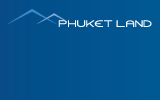Further Reading:
Best Buys - Hillside Land Titles

This month I will respond to questions posed by John D. Smith of Kamala and Mr. Ken Cook of Perth
While walking on the hills of Phuket, I have noticed concrete posts, survey markers and paint marks on trees, often in completely overgrown jungle. Are you able to offer an explanation.
Yes. While much of the land on jungle covered hillsides, may not (as I have noted in previous articles, have any land title deeds) this is not to say that it is without value or owners (strictly speaking claimants). In fact such land is often traded and frequently at quite high prices, in the expectation that it may one day be possible to issue some type of title or registered ownership claim. The much publicized Sor Bor Gor, (the mishandling of which, brought down the last government) is just one such way that title might be issued and indeed may well have been the objective of the survey work you saw - (people clarifying their claims on jungle plots, which they then need to pass off as cultivated farms - in order to qualify for title issuance). Please note however that trading in untitled land is a very tricky and risky business (even for a Thai national) and definitely not recommended to the uninitiated.
I am considering buying a property in Phuket. What properties make the best buys?
The primary rule for future capital growth, is always go for something Prime. Such properties are limited in supply and will always be sought after even in times of market weakness. There will always be secondary land available and new properties will always be built on them as soon as there is even the smallest profit margin for a developer, so the scope for growth in secondary areas is always limited over the longer term. What constitutes Prime in Phuket? Anything that is hard to duplicate. Assuming we are addressing land for residential properties, Ocean frontage, Views (preferably ocean), and protected surroundings are probably the most significant factors.
Ocean frontage is pretty clear, so are views (although these can easily be lost through changing surroundings). Protected surrounding are much harder to define.
A beautiful deserted coconut plantation today, can be a half built shopping center next week - the local planning laws place very little restriction on what can be built (except in the 50 meters of land immediately adjacent to the sea). On most titled land in Phuket buildings 12 meters high may be built on up to 75% of the available land area. As such for protected surroundings one needs to look for the combination of a physical topography that protects the neighborhood and it’s views (steep hillside, adjoining rivers, public land or parks) and/or a planned development that places restrictions on building within the project or subdivision.
Factors such as services, proximity to shops, good roads will strongly effect price - but don’t confuse this with "Primeness" - these are external factors which can always be built and will in due course come to all Prime sites.
Timing is another significant factor. The greatest potential for growth exists when a Prime little developed location changes into a developed one. The same potential exists when buying into the early stage (pre construction) of a development where prices will typically be 30% or more less than the post construction prices. However these strategies are not without an element of risk. A project on the drawing board may not actually get built - so make sure the contract clearly defines facilities, completion dates and refund policies for non commencement/completion.
It is always tempting to say that because a very prime area has seen such growth and attained such high price levels that there is no more room for capital appreciation. It may be true, but I have heard this comment about shops on the beach road Patong for the last ten years, ever since shop houses hit the (then) outrageous price of five million Baht - now expect to pay 5 time that!!. If budget does not allow the purchase of a prime developed location, it is my view that a prime undeveloped location will always be a better choice than a secondary developed location.
However if you are buying a property for your own use (even if only
as a holiday home) then a property which you personally find comfortable
and useable - even if these choices may in some cases be contrary to
a strictly rational and calculated financial decisions - should be paramount.
What use at the end of the day is a home that you don’t use or
find uncomfortable?


